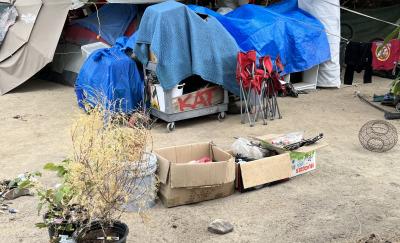Using Tenant-based Housing Vouchers to Help End Homelessness in Los Angeles
Authors
Jill Khadduri, Nichole Fiore, Samuel Dastrup, Lauren Dunton, Keely Jones Stater, and Haisheng Yang


For more than 10 years, Los Angeles County has been engaged in a community-wide effort to end homelessness, focusing on people with high-needs and chronic patterns of homelessness through a partnership among local government agencies, homeless service and healthcare providers, community organizations, and philanthropy. Tenant-based rental subsidies are a major component of the strategy for expanding access to permanent housing that includes supportive services. Most of the county’s tenant-based rental subsidies are provided through the federal government’s Housing Choice Voucher (HCV) program. Public housing authorities (PHAs) across Los Angeles County administer HCVs, a substantial number of which are dedicated to people experiencing homelessness. PHAs work together with homeless service providers, the county’s Department of Health Services and the Department of Mental Health, and the U.S. Department of Veterans Affairs to match people experiencing homelessness to vouchers and assist them in becoming eligible for HCV and searching for housing.
In a partnership with the Conrad N. Hilton Foundation, as part of the larger evaluation of the Foundation’s Chronic Homelessness Initiative, Abt Global examined how effective the Los Angeles region’s PHAs are in using vouchers to help people leave homelessness, the extent to which voucher holders succeed in using the vouchers to lease a housing unit (“lease-up”), the locations where they use vouchers, and the implications for the PHAs’ programs—who they serve and at what cost.
The findings included:
- Once issued a voucher that permitted them to search for housing, nearly seven of every 10 households experiencing homelessness (65 percent) succeeded in leasing a housing unit with voucher assistance.
- Los Angeles County incentives for landlords that agree to rent to people experiencing homelessness appear to have helped drive these high success rates.
- The per-household cost for PHAs to serve people experiencing homelessness is only slightly higher than the cost of serving other households. The additional cost of serving a formerly homeless households is $29 per month, or about 3 percent.
- Success in using a voucher was similar among people experiencing homelessness, regardless of household size and disability and for all racial and ethnic groups. Case managers and landlord incentives appear especially important for helping Black and Hispanic households overcome barriers to leasing up.
Related Highlights:
Webinar Recording: Using Tenant-based Housing Vouchers to Help End Homelessness in Los Angeles, 2016-2020
Read More

Association for Public Policy Analysis & Management (APPAM) 2024 Fall Research Conference
Experts from Abt Global will be presenting at the Association for Public Policy Analysis & Management (APPAM) 2024 Fall Research Conference.

Understanding Homeless Encampments in Long Beach, L.A. River Basin, and San Fernando Valley
A Conrad N. Hilton Foundation-funded, Abt-led evaluation studied three encampments in Los Angeles.

Engaging Partners for Equitable and Inclusive Economic Growth
JPMorgan Chase Challenge grantees use varied approaches to engage people and organizations to guide and accelerate achievement of their work toward equitable and inclusive economic growth.

2022 Annual Estimates of Sheltered Homelessness in the United States (AHAR Part 2)
The 2022 Annual Estimates of Sheltered Homelessness report (AHAR Part 2) finds that homelessness increased, notably among older and Latine people.
Region
- North America